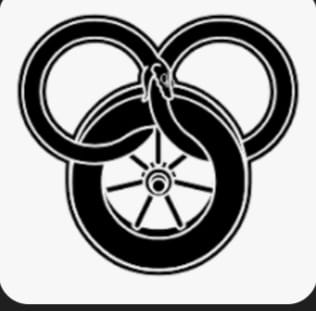Today, the entire world uses the number system that runs from zero to nine, called the Indo-Arabic numeral system. It’s also known as the Arabic numeral system or the Hindu numeral system.
Earlier, Europe was using Roman numerals, a system so convoluted and unscientific that if someone wanted to write down a big number like a billion, they'd need an entire street full of symbols.
Nowadays, it's been relegated to the history books.
According to historians, this Indo-Arabic numeral system originated in India sometime between the 1st and 4th centuries AD, though some argue it emerged later, between the 6th and 7th centuries.
Back then, India and the Arab world had significant contact and exchange, so by the 9th century, the system made its way to the Arab world.
Persian mathematicians like Al-Khwarizmi and Al-Kindi expanded upon it, and even today, Arabs refer to it as "Hindsa," acknowledging its Indian roots. Later, in the 11th and 12th centuries, it reached Europe, gradually displacing the Roman numeral system.
Since it came to them via the Arabs, Europeans called it the Arabic numeral system.
Eventually, as more historical evidence surfaced, it began to be known as the Indo-Arabic numeral system, as it’s still called today.
Albert Einstein once famously said, "We owe a lot to the Indians, who taught us how to count, without which no worthwhile scientific discovery could have been made."
Knowledge follows its own journey, and national borders don’t restrict it.
Just imagine if European rulers had declared an "independent" policy back then—today, they’d still be using Roman numerals, filling up the streets with symbols just to keep track of their numbers.
There’s an English saying: "Don't reinvent the wheel." Once upon a time, someone invented the wheel, and the world adopted it.
If tomorrow, some historian proves that the wheel was invented in what is now Pakistan, should we then drive all our cars into the Indian Ocean in protest?
Similarly, today, most countries follow the Western calendar, starting the year on January 1. Our entire computer systems, space science—all of it operates on this calendar.
Even India runs almost entirely on this calendar now. In ancient times, India used the Vikram Samvat and Shaka Samvat calendars.
But today, apart from festivals and religious observances, these calendars play almost no functional role in the mainstream.
Their presence is more symbolic than practical. So, it’s crucial that we don’t end up reversing the wheel.
Today marks the start of Vikram Samvat. It was on this day, 57 years before the Common Era, that King Vikramaditya ascended the throne of Ujjain.
To commemorate his coronation, he established the new year.
The Shaka Samvat, however, is even more popular. All North Indian almanacs are based on it, and India’s national new year also follows the first day of the Shaka Samvat.
The Shaka Samvat began in 78 AD, though historians debate who started it. Generally, it's attributed to Emperor Kanishka, though some believe Emperor Chashtana began it.
Additionally, various regions in India celebrate new years on different dates, like the Malayali, Tamil, Gujarati, Punjabi, Assamese, Mizo, Bengali, Marathi, Kashmiri, Telugu, Naga, and Odia new years.
This diversity is the real beauty of this great country. Here, the dialect changes with every step, and the language changes with every mile.
The ancient wisdom of India is so vast that no one can fully capture it. If we try to, we risk demeaning other traditions in the rush to prioritize one.
So, honor and remember every part of our ancient wisdom—but move forward with the world.
Because the reverse wheel doesn’t push you forward; it only pulls you back.




